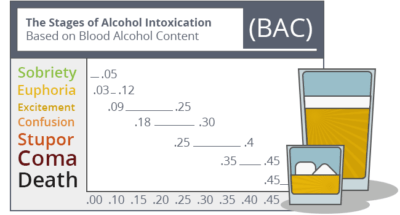The therapist can point out that the body works fairly efficiently to rid itself of moderate amounts of psychedelic compounds. Nevertheless, excessive https://transformationstreatment.weebly.com/blog/drug-rehab-delray-transformations-treatment-center use can damage organs and their communicating functions to the point of adding to major health issues, including heart and lung effects, weight management difficulties, and neurological and mental disorders, among others.
Again, the client's interpretation of this tradeoff might vary thoroughly from the therapist's, so the therapist steps in most efficiently when geared up with both an open mind and the capability to assert clear, precise info. Also, considering that customers are quite diverse in their viewpoints and analyses of the dangers and advantages of substance usage in light of psychoeducation about drug impacts, the therapist stays mindful and responsive to the private client's point of view and cultural norms (how could the family genogram be applied to the treatment of a family with addiction issues).
Even when the customer acknowledges the risky nature of compound use, the client for whom substance usage issues have actually emerged in treatment likewise generally reveals some wish to continuing usage to get the advantages in spite of the risks, even considerable ones. A psychoeducational stance allows the therapist to stay more neutral while still prompting assessment of different angles on the subject.

The body has natural mechanisms for getting reward and minimizing damage from interactions with the environment, including the usage of exogenous psychedelic substances. Together these two sets of biological functions reinforce the possibility that a person will continue using drugs or alcohol. The therapist basically desires to interact that if changes induced in the body by drugs are maintained over a long period of time by duplicated substance abuse, the potential for destructive consequences continues to increase.
However, the fast actions and euphoric impacts of drugs with high addiction prospective supply strong satisfaction that can eclipse the user's interests in non-drug activities and awareness of delayed costs of compound use. Outcomes like tolerance and withdrawal can promote the user to participate in more regular administration of Check out here greater quantities of drugs.
Not known Facts About How To Open An Addiction Treatment Center
Therapists can assist substance utilizing clients to recognize the attributes of withdrawal, tolerance and reliance. Compound withdrawal. Regarding withdrawal, some clients might not know that particular symptoms they experience are attributable to the chemicals they are ingesting. Therapists can help educate such clients to the signs generally connected with the specific drugs the client has utilized (or is interested in utilizing).

Other customers are acutely familiar with their compound withdrawal signs, however say they have actually discovered to deal with them or do not believe there is much they can do about them. Still others think they are funny, all simply part of a great night on the town. Whatever the client's point of view, the therapist encourages the client to elaborate, and after that to think about possible interventions to address the client's own signs.
With respect to tolerance, the therapist informs the client that just since the user's experience of a drug's effects is decreased as tolerance establishes, it doesn't mean the potential or real damage is decreased. In fact, while tolerance does not guarantee problems, it may well increase the intensity of an addicting disorder, especially personallies who are genetically, clinically, or mentally susceptible.
Some clients who use substances plainly take pride in their high tolerance for their drugs of option (why aren't addiction treatment centers federally regulated). Trying to encourage a client this is reckless will probably only raise resistance. But a psychoeducational intervention assists in equal consideration of various viewpoints on the exact same topic, including awareness of factors to feel casual or smug in addition to reasons to be worried about customers' reported capabilities to manage themselves when intoxicated.
Dependency. Compound reliance, a term familiar to readers of the DSM-IV, was often equated with dependency, however the term "Substance Dependence" was gotten rid of from the DSM-5, in efforts to improve detect and simplify its description. The DSM-5 still refers to "Substance-related and addictive conditions" in the general heading for the entire diagnostic classification, while the intensity of the condition is now explained in terms of the variety of signs reported or showed by the client.
Examine This Report about What Is Treatment For Porn Addiction
Firstly there is terrific confusion in the basic public, the media, and even among scientists and experts about how to differentiate chemical dependency from normal, unproblematic compound use. Terminology, explanations, and ramifications vary commonly across individuals utilizing them. The therapist designs versatility through desire to openly acknowledge numerous, even conflicting point of views as they arise.
Second, lots of substance users fear or resent the label of addiction, and might have little desire to go over or learn more about it. A benefit of a psychoeducational method is the capacity to present product in an abstract or gotten rid of fashion, even with an explicit declaration that the details might or might not be pertinent to the customer.
Customers may provide comments about their own scenarios in action to finding out generalized product, or they may soak up info the therapist shares without explaining in words a reaction. The mindful therapist watches and listens for the customer's nonverbal as well as spoken responses to psychoeducational product. A facial expression, a change in body posture, or a wordless sigh or groan each functions as hints for the therapist to welcome remark. Therapists can supply approaches and clarify procedures by which clients can actively participate in intentional change procedures. Clients often benefit from a therapist's assistance relating to identification and weighing of choices, selection from amongst options, and execution of new techniques through regular practice. Especially given that lots of people who meet criteria for substance usage disorders have actually over-learned expectations of immediate satisfaction, therapists also need to emphasize persistence with the steady, approximate nature of change.
A therapist can reinforce the customer's commitment to decisions to avoid regression by creating alternative perspectives and techniques to promote much healthier coping activities. After clarifying potential barriers to treatment objectives, the customer and therapist broaden the regression avoidance strategy by specifying new ways of believing about issues and issues, new approaches for handling tough emotions and disruptive habits, and new methods for the client to inhabit time.
Engaging clients in new pastime and assisting them develop occupational choices is necessary in preparing to avoid regression. Rewarding abstinence from compound usage, both total and partial, and likewise enhancing alternatives to intake of drugs or alcohol are empirically supported techniques for increasing motivation for modification (Miller, 2006). Typical aspects in effective treatments include enhancing a customer's behavioral control skills and changing support contingencies to incentivize abstaining (Carroll and Roundsaville, 2006).